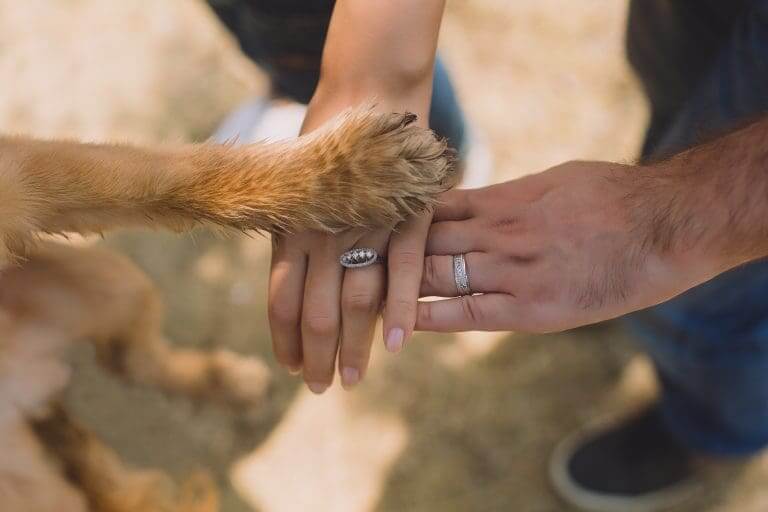How To Pronounce Dachshund?
Post Date:
December 10, 2024
(Date Last Modified: December 10, 2024)
Dachshunds are delightful dogs celebrated for their long bodies and short legs. They possess playful personalities that endear them to many. However, a frequent point of confusion lies in the correct pronunciation of their name. This can lead to various misinterpretations, making it essential to clarify how to say “dachshund” accurately.
Understanding the Origin
The term “dachshund” is derived from German, where it translates to “badger dog.” This description highlights the breed’s historical role in hunting badgers. The word comprises two components: “dachs,” meaning badger, and “hund,” meaning dog. Knowing this background enriches your appreciation of these charming companions and underscores their unique traits.
Correct Pronunciation
In the United States, “dachshund” is often mispronounced as “dach-sund” or “dash-hound.” The accurate pronunciation is “dahks-hoont.” The “dach” is pronounced like “dock,” while “shund” sounds like “hoont.” It may seem daunting initially, but with practice, it becomes a natural part of your vocabulary.
Phonetic Breakdown
Breaking the word down phonetically can ease the learning process. The “dach” section uses the “a” sound as in “father,” followed by a hard “k” sound. The “shund” component features the “u” sound as in “foot.” When combined, this results in the smooth pronunciation of “dahks-hoont,” the standard among breeders and enthusiasts.
Importance of Pronunciation
Mispronouncing “dachshund” can create misunderstandings, especially when conversing with fellow dog lovers or attending dog shows. If someone mispronounces the name, gently correcting them can be a valuable opportunity to share insights about the breed, fostering engaging discussions.
Building a Connection
Mastering the pronunciation of “dachshund” not only enhances conversations but also deepens your connection to the breed. Whether you own one or admire them from afar, accurately saying their name reflects respect for their history. This knowledge can lead to discussions about dog care, training, and the special traits that make dachshunds so beloved.
Regional Variations
Pronunciation can vary by region. In the U.S., “dash-hound” or “dach-sund” are common, while other parts of the world maintain closer ties to the German pronunciation. These differences showcase the cultural influences surrounding dachshunds in various locales.
Different Types of Dachshunds
Dachshunds come in three coat varieties: smooth, long-haired, and wire-haired, each possessing distinct looks and personalities. Regardless of their coat type, these dogs share an endearing playful nature that captivates many.
Community Engagement
Engaging with the dachshund community can be immensely rewarding. Participating in breed clubs or dog events connects you with fellow enthusiasts who share your passion. These gatherings offer a chance to learn more about dachshunds, exchange training tips, and share amusing anecdotes about your furry friends.
Understanding Their Needs
If considering adding a dachshund to your family, it’s vital to familiarize yourself with their specific needs. Known for their strong personalities, dachshunds can sometimes exhibit stubbornness. Understanding their temperament aids in effective training and bonding. Early socialization and training are crucial for nurturing well-adjusted and happy dogs.
Health Considerations
Due to their elongated spines, dachshunds have unique health considerations. Being mindful of their back health is essential, particularly regarding jumping or climbing stairs. Routine veterinary check-ups and a balanced diet are key to maintaining their overall well-being. Many owners find that keeping their dachshunds at a healthy weight helps prevent back issues later in life.
Mental Stimulation
Providing mental stimulation is critical for dachshunds. They are intelligent dogs that thrive on engaging activities. Incorporating puzzle toys, training exercises, and interactive play into their daily routines helps keep their minds sharp and prevents boredom-driven destructive behavior.
Embracing Their History
Exploring the rich history of dachshunds reveals their significance. Originally bred in Germany for hunting, these dogs were prized for their ability to dig out burrowing animals. Their tenacity and courage are traits that endure in the breed, adding to their unique qualities.
Mastering the pronunciation of “dachshund” enriches your experience as a dog owner or enthusiast. This small yet meaningful aspect enhances respect and admiration for these wonderful dogs. Engaging with the dachshund community, understanding their needs, and appreciating their history fosters a deeper connection with this cherished breed. Each dachshund brings its unique personality, and as you learn alongside them, the joy they offer becomes ever more apparent.






